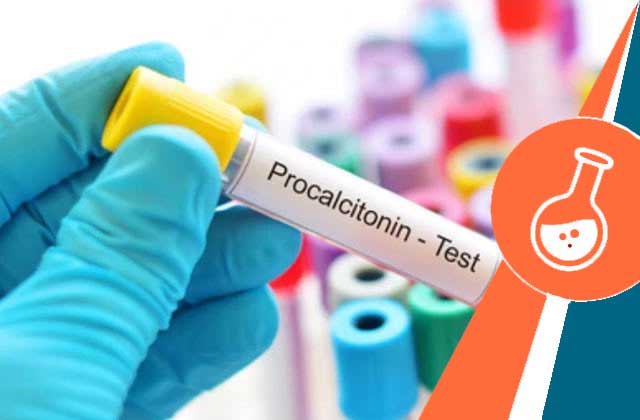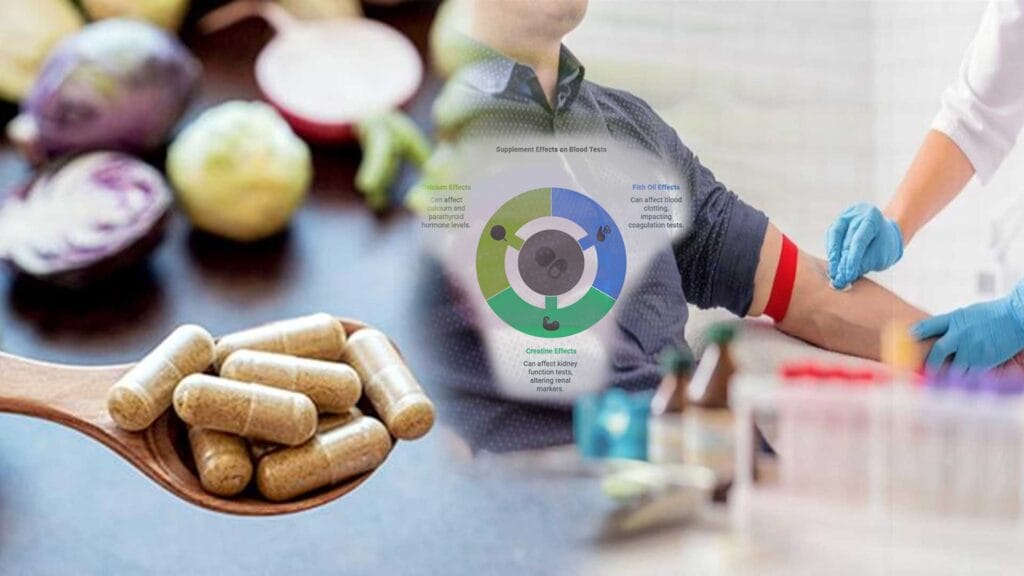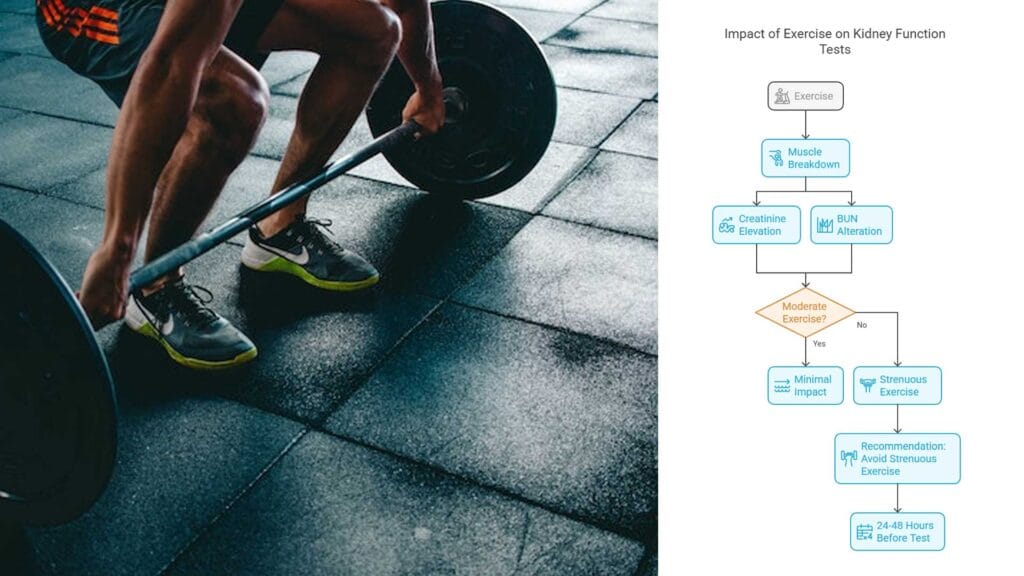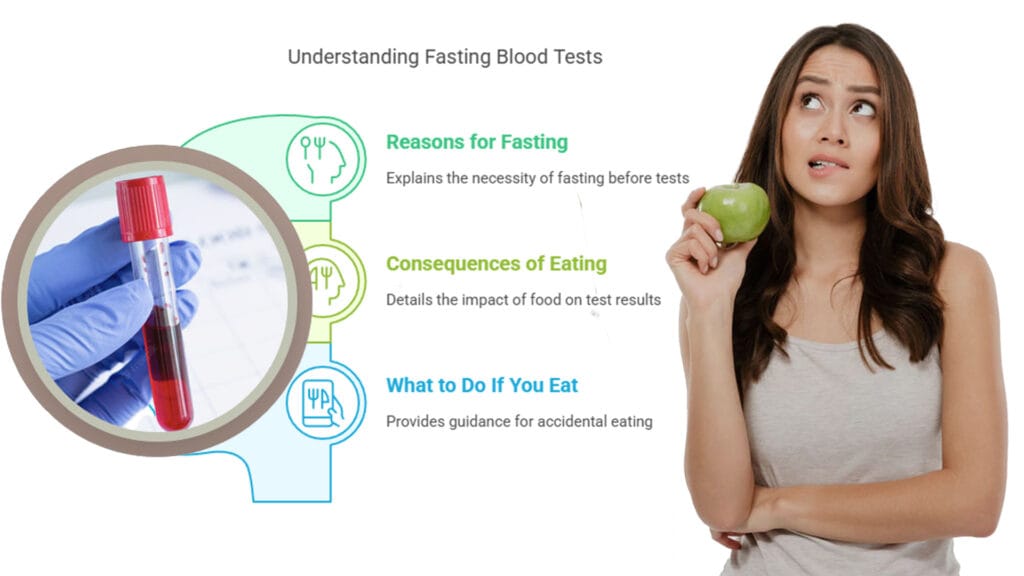What Is PCT Test
The procalcitonin (PCT) test is a diagnostic tool used in medicine to detect bacterial infections. Procalcitonin is the biomarker that plays a pivotal role in the etiology of infections. Though it is mostly produced in the thyroid gland, neuroendocrine cells release procalcitonin as a response to bacterial infections. A procalcitonin blood test determines your blood’s procalcitonin level. Procalcitonin levels in your blood are typically relatively low. However, your blood’s normal PCT levels may increase if you have sepsis or a severe infection.
About Procalcitonin Test
Learn everything about PCT Testing before you book lab test online. Understand the why, how, and what of this test.
Why Do I Need PCT Blood Test?
Have you been struggling with shortness of breath, occasional or frequent chills, rapid heartbeat, confusion or extreme pain? These could be the indicators of sepsis, an acute bacterial infection. You are recommended to go for a procalcitonin blood test if your primary healthcare physician suspects a sepsis or any other severe bacterial infection.
Opt for an at-home or in-clinic PCT blood test right away when you or your loved ones experience any symptoms of:
- Sepsis: It is a condition that gets triggered by the chain reaction from pre-existing infections in the lungs, skin, urinary tract or the gastrointestinal tract.
- Bacterial Pneumonia: A bacterial infection that impacts the lungs.
- Bacterial Meningitis: It is a life-threatening condition and occurs when the membranes that surround the brain and spinal cord get infected with bacteria.
- Urinary Tract Infections (UTIs): Bacterial infections can impact any part of the urinary tract and these may snowball and affect the surrounding organs too.
- Intra-Abdominal Infections: These are mostly caused in the GI tract when the bad bacteria in the gut outweighs the good microbiome.
- Skin and soft tissue infections caused by bacteria
These acute bacterial infections when left untreated for long, can lead to medical emergencies. Over time, your survival prognosis will rapidly decline.
How To Prepare For PCT Blood Test?
To prepare for Procalcitonin Blood Test, follow these steps: Consult your healthcare provider, inform them about medications, avoid intense exercise, follow fasting instructions if given, and provide accurate medical history.
What Happens During PCT Blood Testing?
A PCT Blood test only takes a few minutes.
- As per the scheduled time of the blood test, a lab technician who usually takes blood samples will arrive.
- A thin needle will be used to draw blood from your arm’s vein.
- The needle might cause a mild pinch and some discomfort.
- The lab technician then fills a collection tube with blood and then removes the needle from the skin.
- They place a small bandage on the arm.
Finding PCT Test
Should you book blood test online to check your procalcitonin levels or go to the nearest clinic and get it done by a medical professional? Let’s Find Out
Can I Take PCT Lab Test At Home?
Yes, the PCT blood testing can be taken at home. HealthcareOnTime’s at-home lab testing service in association with Thyrocare, provides a convenient and efficient way to get important medical tests done from the comfort of your place, without the need for a doctor’s visit or a trip to a lab. It is always preferable to consult with a healthcare provider about any concerns regarding your test results.
How Much Does PCT Test Cost?
How Much Procalcitonin Test Cost?
The Procalcitonin Test Cost varies significantly depending on many factors:
- Location: The Procalcitonin Test price in India may vary depending on the city or the region in which the test is conducted. For example, in Bangalore or Mumbai, it might be expensive as compared to small towns.
- Type of facility centres: The Procalcitonin Test Cost also varies between private hospitals, government hospitals, and diagnostic centres. Cost is lower in government hospitals as compared to private ones.
- Healthcare centres: Diagnostic centres, laboratories and hospitals may have different Procalcitonin Test Cost. It depends upon the benefits and reputation of the healthcare centre.
- Insurance Coverage: Individuals with health insurance can cover partial or all costs depending on their policy coverage and network providers.
- Additional services: Additional services such as home sample collection, express test results, or additional charges for special management may be paid, which contributes to the overall Procalcitonin Test Price.
Test Result Interpretation
You received your PCT blood test results but still need help determining if they fall under the normal range. Read this section to understand whether your results are within the PCT normal range or not.
What Does Procalcitonin Test Results Mean?
The Procalcitonin Blood Test cannot identify and determine an infection all alone. However, this blood test helps doctors figure out whether sepsis or any other bacterial infection is present in your body or not. Low procalcitonin levels in an unwell patient indicate a low risk of developing sepsis and/or progressing to severe sepsis and/or septic shock. Significant levels signal a higher risk of developing severe sepsis and septic shock and a significant likelihood of sepsis.
With the help of procalcitonin blood test test results, your doctor can determine how severe your sepsis is and whether it will likely escalate to septic shock, which happens when blood pressure falls dangerously low.
Your primary care physician may also recommend CBC blood test, CRP test, CSF analysis, blood cultures and other diagnostic tests to offer you a conclusive and holistic diagnosis.
What Is The Procalcitonin Test Normal Range?
PCT blood test normal range based on different age groups is:
| Age Group | PCT Normal Range |
| Adults | < 0.1 ng/mL |
| Children | < 0.2 ng/mL |
| Infant | < 0.3 ng/mL |
What Medical Conditions Can Cause High Procalcitonin Level?
Medical conditions that result in high levels of procalcitonin in the body are:
- Sepsis: An acute condition that is triggered by a chain reaction of infections in other body parts.
- Risk of having severe sepsis: An existing sepsis condition or the risk of it can result in a surge in procalcitonin levels and raise your chances of developing severe sepsis.
- Septic shock: An acute and life-threatening condition during which your blood pressure drops down dangerously.
- Severe systemic bacterial infections of the lungs, skin, urinary and GI tracts.
The higher the PCT levels in your body, the higher is your risk of having sepsis and experiencing septic shock.
What Medical Conditions Can Cause Low Procalcitonin Level?
Medical conditions that can cause low levels of procalcitonin in the body are:
- Kidney infection (among children)
- The initial stage of systemic bacterial infection
- Severe heart attack
- Recent surgery and serious burns
- Tissue damage from trauma
Procalcitonin levels that are declining or low after medicine administration often indicate the effectiveness of your medication if you are being medicated for a bacterial illness.
Why Choose HealthcareOnTime?
Convenience at Your Doorstep
Ever wished for healthcare that comes to you? HealthcareOnTime makes it a reality with doorstep lab testing, cutting out clinic hassles. No more queues or travel stress. Experience at-home sample collection, prioritizing health without time constraints. —your path to health, now just a doorstep away!
Affordable Testing with Thyrocare Partnership
Experience cost-effective lab testing at-home with HealthcareOnTime’s exclusive partnership with Thyrocare. Benefit from competitive prices while ensuring precise results. Our collaboration with Thyrocare Technologies Limited guarantees affordability without compromising on the accuracy and reliability of your lab test.
Comprehensive Health Screening
At HealthcareOnTime, we’ve got your back with our comprehensive health checkup packages! Take charge of your well-being by booking online. These packages empower you to stay ahead, catching potential issues early for timely management. It’s like having a health ally, and making informed decisions for a healthier, happier life.
Disclaimer: Although we have endeavoured to provide accurate information on this page, we strongly recommend that you seek advice from your doctor before relying on any of the test ranges or lab-test recommendations mentioned herein.
Sources
Ref Links:
- https://medlineplus.gov/lab-tests/procalcitonin-test/
- https://emedicine.medscape.com/article/2096589-overview
- https://www.ncbi.nlm.nih.gov/pmc/articles/PMC5759088/
More Related Tests
Why To Book with HealthCareOnTime

17 Crores+ Samples Processed

World Class Technology Labs

25+ Years of Trust & Experience

Free Home Collection
FAQs Around PCT Blood Test (Procalcitonin)
Is high procalcitonin bacterial or viral?
Procalcitonin is a biomarker that helps distinguish between bacterial and viral infections. Elevated procalcitonin levels are often indicative of a bacterial infection, while viral infections usually show lower levels. It aids healthcare professionals in determining the appropriate treatment course and avoiding unnecessary antibiotic use.
How long does it take for Procalcitonin to return to normal?
Procalcitonin levels can indeed increase rapidly within hours of infection or injury, peak at around 6 hours, and remain elevated for 8 to 24 hours before gradually returning to baseline in 2 to 3 days. However, these timeframes can vary depending on the individual and the specific situation.
What causes high Procalcitonin?
High procalcitonin levels are primarily caused by bacterial infections. Conditions such as severe sepsis, pneumonia, urinary tract infections, and other bacterial-related infections can elevate procalcitonin. Additionally, non-infectious factors like surgery, trauma, or severe inflammation can also lead to increased procalcitonin levels. It’s important to note that procalcitonin is not typically elevated in viral infections.
What blood tests detect Sepsis?
Key blood tests for sepsis include Complete blood count Test, procalcitonin, blood culture, lactate, C-Reactive Protein (CRP) Test, and coagulation tests. Prompt testing is vital for timely intervention
Can procalcitonin be high without infection?
Yes, procalcitonin can be elevated without an active infection. Non-infectious factors like surgery, trauma, severe inflammation, and certain medical conditions can also cause an increase in procalcitonin levels.












